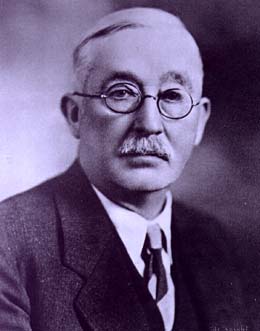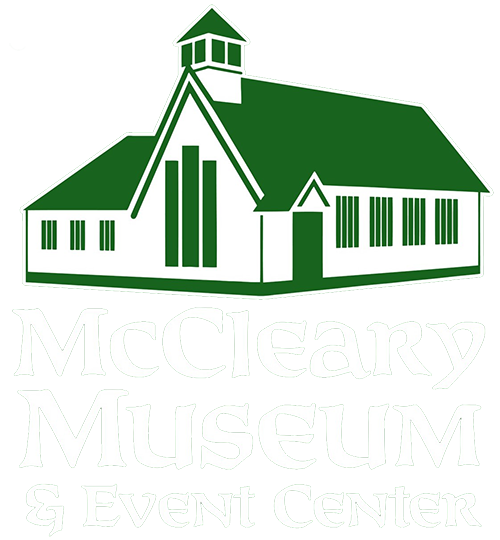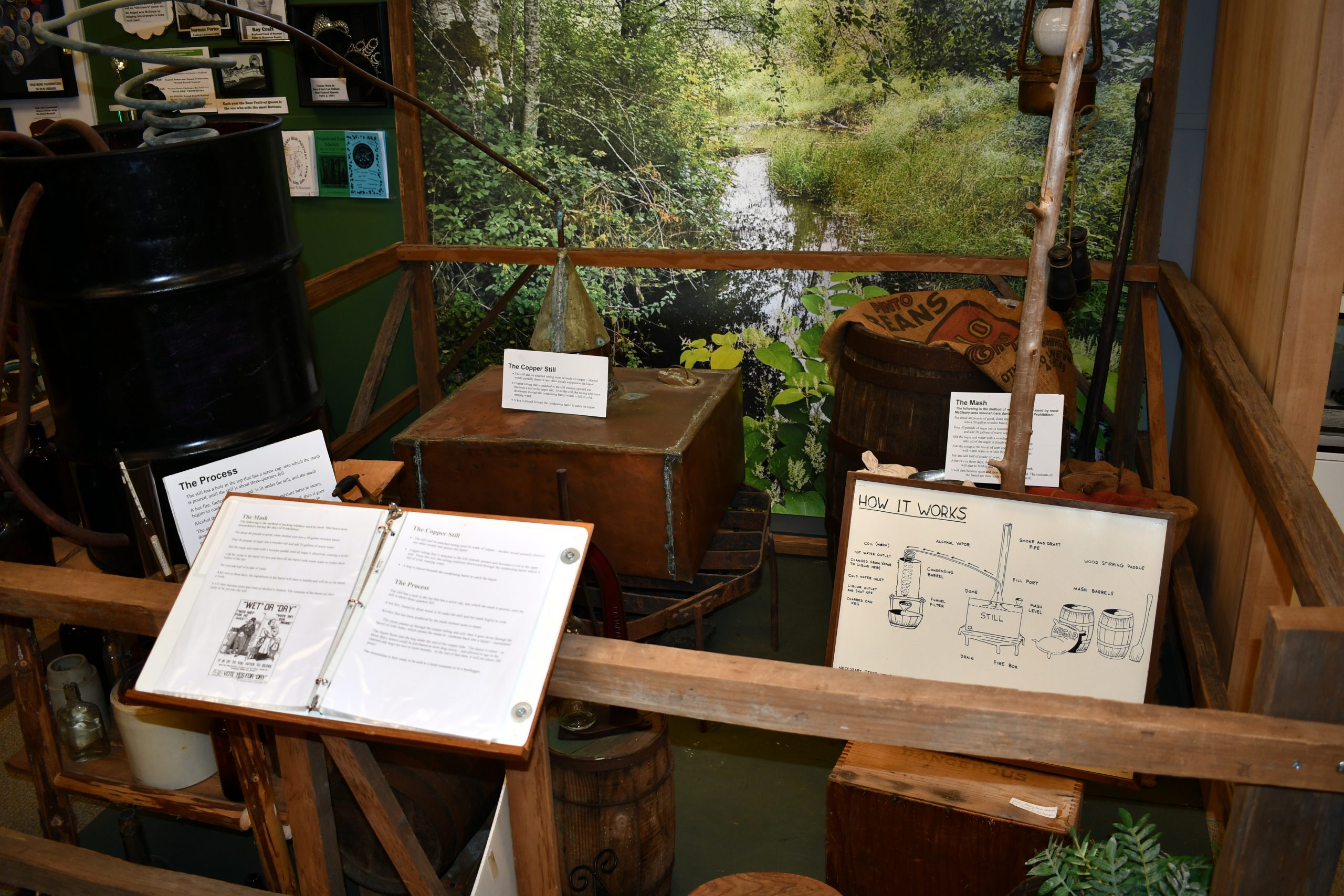Imagine yourself in the early 1900’s In Grays Harbor County. Like now, you’d be living in a place with cities on the harbor and small towns scattered amidst the forests. You’d also be living in a state nine years ahead of the nation, where women have been given the right to vote (1910) and the State has declared the sale and manufacturing of alcohol illegal, effective in 1916.
Had you been alive then, which side of the argument would you have been on? Teetotaling and Temperance or would you support Bootlegging and Moonshining? Would you have been swayed by the many women of the time, such as the The Women’s Temperance Society who strongly believed that they needed to “free the race from the rule and ruin of strong drink” and that their “rule of life was total abstinence from all that can intoxicate”.
Women were fighting not only to vote but to end intoxication, and the fight to legislate liquor use was won before their right to vote nationwide was achieved. The 19th amendment gave the women the right to vote on June 4, 1919, (ratified on August 18, 1920).
Earlier that year, The18th Amendment to the U.S. Constitution was ratified Jan. 16, 1919. It outlawed intoxicating liquors and anything containing a half percent of alcohol qualified as an intoxicating liquor. The Amendment reads, in part: “After one year from the ratification of this article the manufacture, sale, or transportation of intoxicating liquors within, the importation thereof into, or the exportation thereof from the United States and all territory subject to the jurisdiction thereof for beverage purposes is hereby prohibited.”
Notice that nowhere does it state it would be illegal to drink it. Since the Amendment was not enforced for a year, the citizens who could afford to stockpile it, did just that. As the stockpiles dwindled the thirst of the nation seemed to grow more intense.
So, in the later part of the 1920’s, in our area, you would have started to notice more and more moonshine stills and you would hear about bootleggers speeding away from Prohibition officers. The secluded forests were ideal for hiding portable distilleries, and Northern Pacific freight trains brought in dry ingredients and carried out bottles of moonshine to distribute to an increasingly thirsty nation.
Moonshine in McCleary
This was especially true in McCleary. There were wild days in the 1920s when locally distilled liquor became a big industry. The wooded hills around the town were home to secluded stills. Local historian Ernest Teagle wrote that “In some respects, the moonshine days were the liveliest and happiest days in McCleary’s history. Big and little stills were in operation in almost every secluded spot. “When the nation went dry, McCleary went wet.”
According to Norman Porter, newspaper editor: “When the world’s largest door plant moved to McCleary in 1912, the demand for men to operate its machinery was greater than could be supplied by the few families living in the neighborhood. The owners of the plant sent to the labor markets of the coast cities to find men. And the men came, for the most part single men, seeking a good job and a good time. Henry McCleary, sole owner of the plant and of the town, knew what they wanted and saw that they got it. While other communities planned improvements for their schools, streets, parks and other civic needs, McCleary worked hard and played hard. The town built a reputation for producing the most and the best fir doors and its plant was the acknowledged leader in plywood production. It also acquired a reputation for open drinking, unrestricted gambling and other bits of tinsel and spangles that make a camp exciting to single men.”
Henry’s attitude about Moonshine
Known for its high-quality moonshine, McCleary was a center of moonshine production during Washington’s prohibition years. It is reported by old time residents of McCleary that Henry McCleary did not mind bootlegging in his town, so long as it was the “good stuff.” The bad stuff would get you run out of town.” It became a second industry for McCleary, after the door factory. They even had their own label “McCleary Moonshine” on a shield decorated with red and white bars of the United States flag and the stars and moon the manufacture probably worked under. Its slogan, simple and true, “made in the woods,” was sold throughout the county in fruit jars.
Bill Willis, (1931-2006) a past McCleary Museum volunteer, who built a still/moonshine exhibit for the McCleary Museum, stated, “To understand the heritage of McCleary, this would be important for the next generation to understand. The moonshining was as important as the logging and the timber.” One time, federal agents searched tirelessly for a known stash of moonshine, but never found it. The belief is that the minister at the Methodist church opened the church’s roomy basement to moonshiners. The reverend believed that it was ‘good, clean moonshine.”
But what was Ada McCleary’s opinion?
While researching McCleary’s history, one could possibly conclude that Mr. and Mrs. Henry McCleary might have been on different sides of this very strong issue.
Was Ada on the side with other women of the time, being worried about the moral character of those who drank excessively? Ada was eager to start a church in McCleary because she wanted a good influence on the rowdy men that worked for her husband. Everything written about Ada points to the fact that she was a “prim and proper type lady”. Long time resident of McCleary, John Anderson, said of her: “Ada McCleary was one of those people who are blessed with common sense. She was a lady with class.” She was very involved in her community and also in national women’s groups, serving in the national leadership of the DAR. The Methodist Church in McCleary (that is now the McCleary museum) was dedicated in her honor after her passing. The church’s Facebook page said this about her: “Mrs. Ada McCleary, Henry McCleary’s wife, was a devout, faithful and charitable woman. She was well known for her philanthropy and care for people in the community and was known for trying to make life more pleasant for others”.
Locals told of how Ada opened her home to the Red Cross during the First World War so they could have a place to roll bandages, making sheets for hospital beds, making bandages, knitting sweaters and socks and producing wads of cloth for use in cleaning rifle barrels. When some of the women thought they had done enough and suggested that they do something else for a change, she shamed them for the thought and said they were just getting started. She also wrote to the men from this area who served overseas.
Another clue as to her opinion, Ada’s obituary stated: “She has taken a considerable interest in politics and in 1920 was president of the Women’s Republican Party of Grays Harbor County. (Strong support for prohibition came from the Republican party.) All these things might lead one to think that perhaps she might have been in favor of prohibition.
Ada probably didn’t experience much of the effects of Prohibition, as she passed away 3 years later, 10 years before its repeal in 1933. She didn’t get to read some of the local news articles about corruption in government, and local car crashes caused by bootleggers speeding with liquor in their car. She wouldn’t hear about how federal Agents were almost shot by locals when they were arresting the McCleary Pool Hall owners on jointist charges. (operating a “joint” or illegal drinking establishment). She wouldn’t have read about a 15-year-old girl in Aberdeen who jumped from a second story window to avoid arrest or the man who died at a hotel in Aberdeen from drinking bad moonshine. And we can only wonder what she thought about moonshine in the basement of her church.
Certainly, no one knows for sure if Henry and Ada felt the same way about Prohibition, but it’s fun to think about the conversations that might have taken place around their dinner table if she disagreed with his policies.
Washington State, which was ahead of the fight for Prohibition, is now ahead of others states in the legalization of Marijuana. How do you think the people of the 1900s would vote if they lived now?




Excellent, fun snapshot of an earlier time! Learned several facts about the PNW that I wasn’t aware of. Thanks for the article!
Thanks For you comment. Glad you liked the story. We appreciate all our visitors, both online and in person.